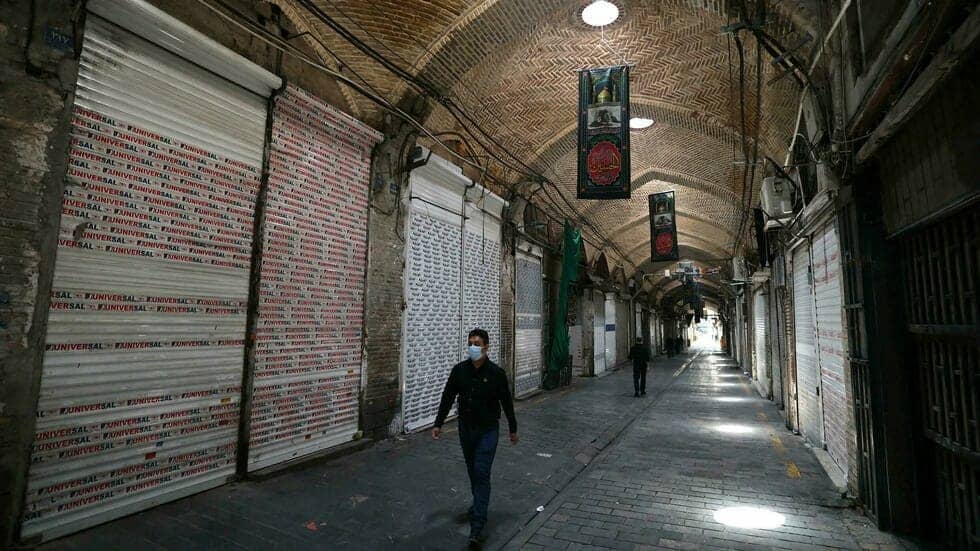Many Tehran shops closed their doors and the Iranian capital’s notoriously heavy traffic eased on Monday as new measures came into force aimed at reining in record coronavirus deaths.
The health ministry announced the deaths of a record 655 coronavirus patients in the preceding 24 hours, with more than 41,000 new cases recorded.
In total the country of 83 million has seen upwards of 98,000 deaths from Covid-19, making it already the Middle East’s deadliest outbreak.
Health officials say the real numbers are higher.
Since late June, Iran has seen what officials have called a “fifth wave” of cases and deaths, the country’s worst yet, largely blamed on the highly infectious Delta variant.
The latest measures, which cover the entire country, include restrictions on driving between provinces until August 27 as well as the closure of government buildings, banks and non-essential shops until Saturday inclusive.
Tehran’s Grand Bazaar, a vast and usually busy shopping hub, was empty as the new rules came into effect.
In other parts of the capital, most shops were closed apart from essential businesses such as pharmacies and food shops, and markedly fewer cars were on the roads.
Since the pandemic began, Iran has avoided imposing a full lockdown, instead resorting to piecemeal measures such as temporary travel bans and business closures.
The health ministry says that more than 15 million Iranians have been vaccinated with at least one shot since the immunisation campaign began in February.








